Brexit: Questions over UK judges on European Court of Justice
- Published
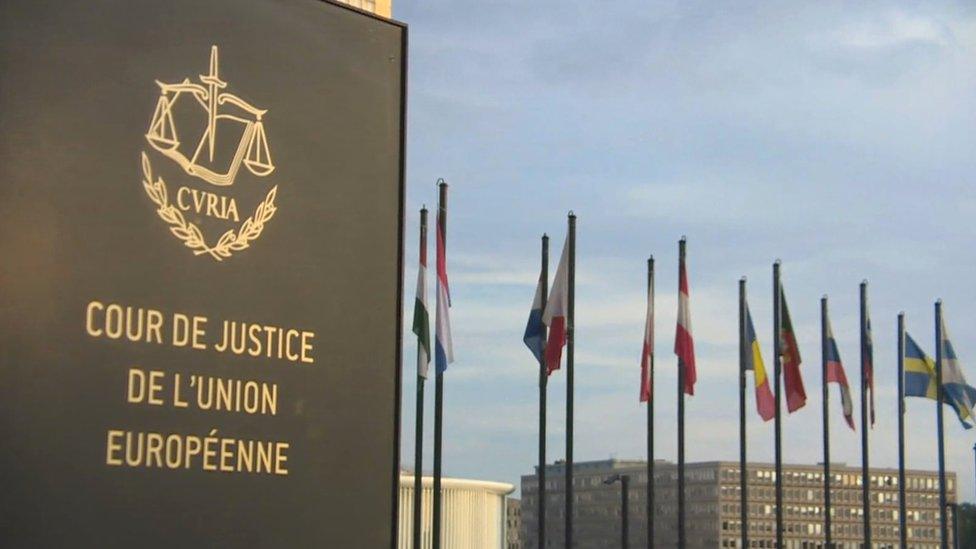
The European Court of Justice sits in Luxembourg
A top EU judge has said he does not know when Brexit will force UK judges to stop serving on the European Court of Justice (ECJ).
Marc Jaeger, president of the general court at the ECJ, told the BBC he was waiting for Westminster to clarify the position.
The UK government's Brexit department said the "precise arrangements" were a matter for the court.
The UK is due to leave the EU in six weeks, on 29 March.
The European Court of Justice sits in Luxembourg and is the supreme court of the European Union.
When the UK leaves the EU it will also leave the jurisdiction of the ECJ - although this will not happen immediately unless there is a no deal Brexit.
The withdrawal agreement includes a transition period to the end of 2020, during which the court's decisions will still be binding on the UK.
That has raised a question about when the three UK judges on the court should stop hearing cases.
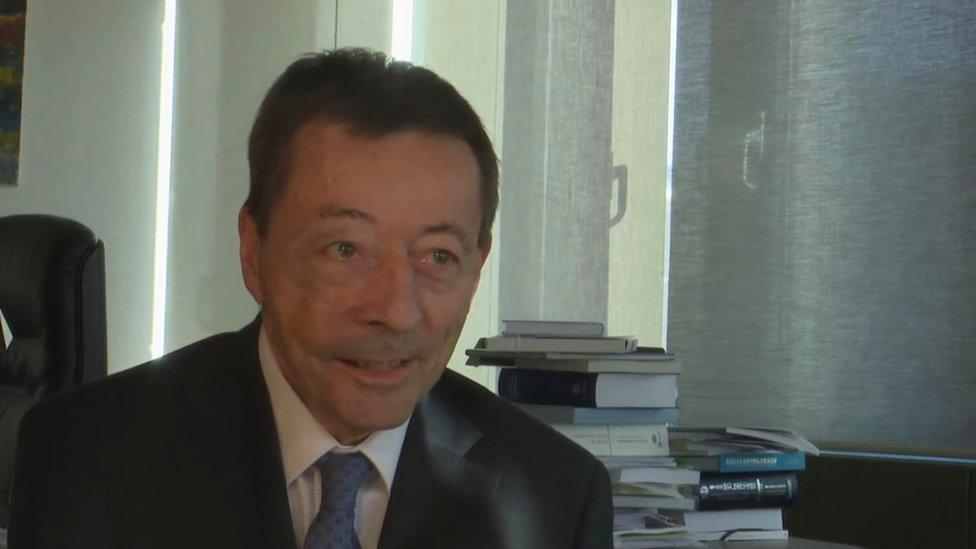
Marc Jaeger, president of the general court at the ECJ, told the BBC he was waiting for Westminster to clarify the position
Asked in a BBC interview if they would leave on 29 March, Marc Jaeger said: "I have no idea and I think if I could answer the question I would probably be very famous in Europe. I don't know the answer."
President Jaeger said he was "waiting for outside input" from Westminster.
One of the UK judges, Ian Forrester, said it was "seriously inconvenient" not to know what was happening.
'Source of anxiety'
"We truly don't know what is going to happen and that's a source of course of concern for every citizen," he said.
"It's a source of anxiety for five million people - either Brits living in the EU27 or EU27 citizens living in the UK.
"There's enormous uncertainty and anxiety."
In a statement, a UK government spokesman said: "When we leave the EU, we will no longer appoint judges to the ECJ.
"The UK judges currently appointed will therefore leave when the UK exits the EU.
"As we will not be a member of the EU during the implementation period, there will be no UK judges on the court.
"The precise arrangements for the departure of the UK judges from the court is a matter for the court and the judges."
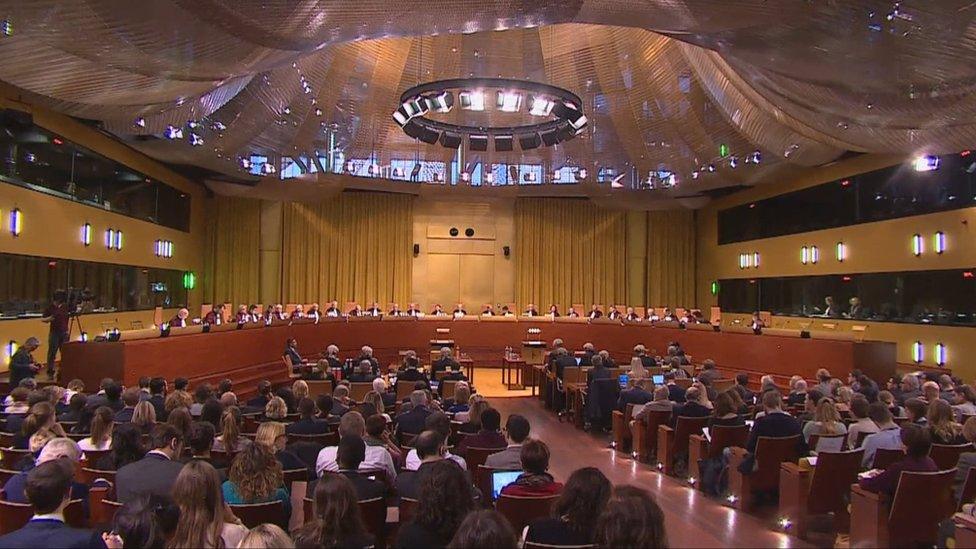
The European Court of Justice is the supreme court of the European Union.
The SNP MP Joanna Cherry, who is also a QC, said UK judges should keep serving during the Brexit transition.
"To my mind, the sensible thing is for the judges from Scotland and England to continue on the Court of Justice during that period otherwise it becomes the foreign court that the Brexiteers have always complained about," she said.
Conservative MP Steve Baker, a leading Brexit supporter, said there was a "strong case" for UK judges to continue but that it had not been possible to negotiate that.
"I don't like it. Eurosceptics don't like it," he said.
"It's highly undesirable, but if we were to unite around a compromise with a transition, it was necessary."
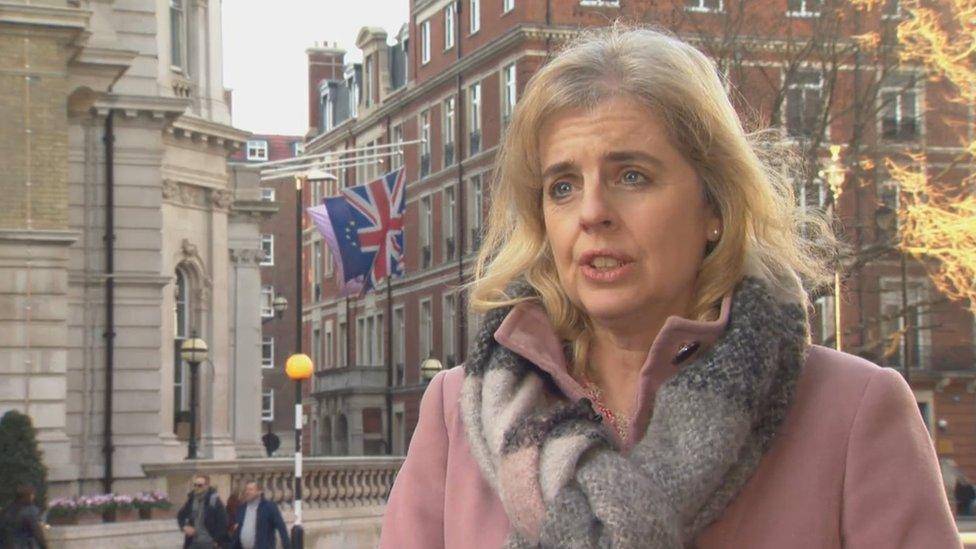
Prof Catherine Barnard said it was important to have a British judge involved in the rulings of the ECJ
EU law professor Catherine Barnard of Cambridge University said it would was a "backward step" to be outside a court that still has decision-making power.
She added: "Anyone would say that it was far more important to have a British judge in the court, to be able to shape the rulings of that court.
"And it's an important court. We're not just talking a small tribunal deciding on something really quite parochial.
"These are big matters. Constitutional matters, but also matters about social legislation - what does working time mean, which actually impacts very much on the day-to-day lives of British nationals."
- Published23 August 2017
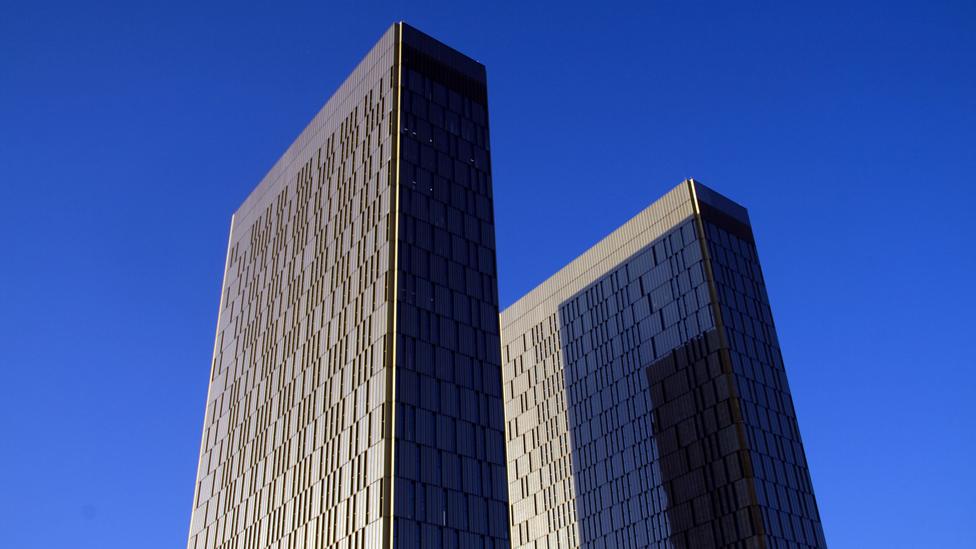
- Published30 July 2019
